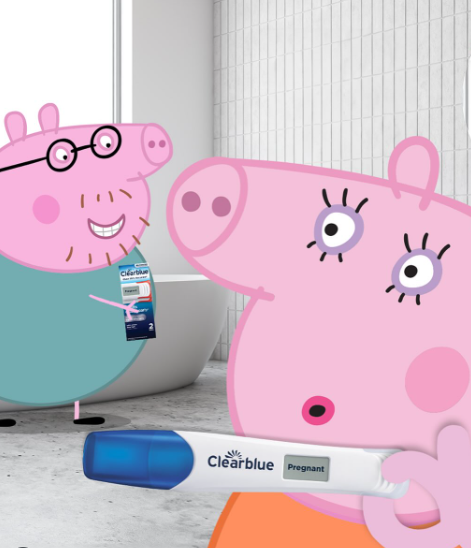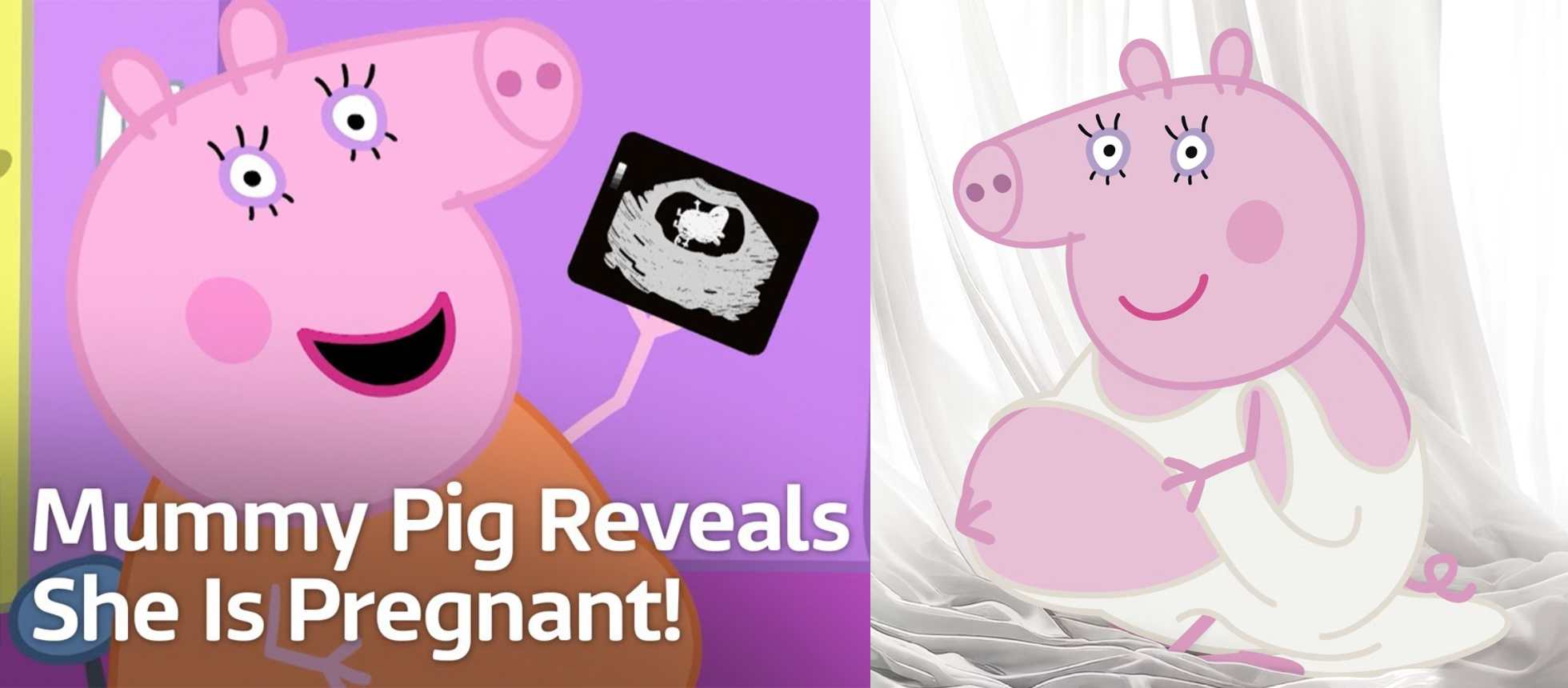The beloved British children’s show Peppa Pig has found itself at the center of an unexpected theory after Mommy Pig’s pregnancy announcement took an unusually elaborate turn. What started as a seemingly innocent storyline about a new baby sibling has sparked numerous theory videos and debate about whether the iconic pig family is pushing pro-birth propaganda.
The controversy began when Mommy Pig announced her pregnancy not through a simple episode, but via a live television appearance on Good Morning Britain. This marked the first time a fictional character had made such an announcement on national breakfast television.

The spectacle didn’t end there – Mommy Pig embarked on a full-scale pregnancy PR tour, complete with magazine photoshoots, podcast appearances, and even a gender reveal at Battersea Power Station that lit up the chimneys pink.
The campaign, orchestrated by marketing company Pretty Green, deliberately mimicked celebrity pregnancy announcements and royal birth coverage. Mommy Pig gave birth at the same exclusive private hospital wing where Kate Middleton delivered her children, despite previous storylines suggesting the family faced financial struggles during the cost of living crisis.

TikTok users were quick to notice the oddity of the situation. User Karen Space posted a video suggesting that “Mummy Pig is only pregnant because birth rates are on the decline. This is a publicity stunt trying to convince women that the only way to be happy is to have a baby.” The theory gained traction as people questioned why a toddler’s TV show was receiving such extensive mainstream media coverage.
The theory deepened when observers noted Peppa Pig’s official partnership with the National Childbirth Trust (NCT), a charity supporting expectant parents. Critics found it strange that a show aimed at four to six-year-olds would have an official pregnancy partner. Even more concerning was a sponsored post featuring Mommy Pig holding a Clear Blue pregnancy test, using cartoon characters to advertise adult products to a primarily child audience.

The theory isn’t entirely without merit when considered within broader social contexts. Birth rates in England and Wales hit a four-decade low in 2023, coinciding with a rise in pro-natalist movements advocating for increased birth rates. The show’s portrayal of traditional family roles – with Mommy Pig working from home while caring for children and Daddy Pig’s job remaining undefined – has been criticized as promoting gender essentialism.
Slate journalist Katie Tobin noted that the campaign aligned with “very alarming culture shifts in the UK, including calls to reform abortion law and a rise in gender essentialism.” The elaborate gender reveal party, uncommon in British culture, felt particularly suspicious.
While there’s no concrete evidence linking Peppa Pig to government propaganda or pro-natalist organizations, the campaign’s execution was undeniably strange. Whether or not the theory holds water, one thing remains clear: there’s something unsettling about the extensive media coverage of fictional pigs reproducing, and the increasingly sophisticated ways brands market to both children and parents simultaneously.


